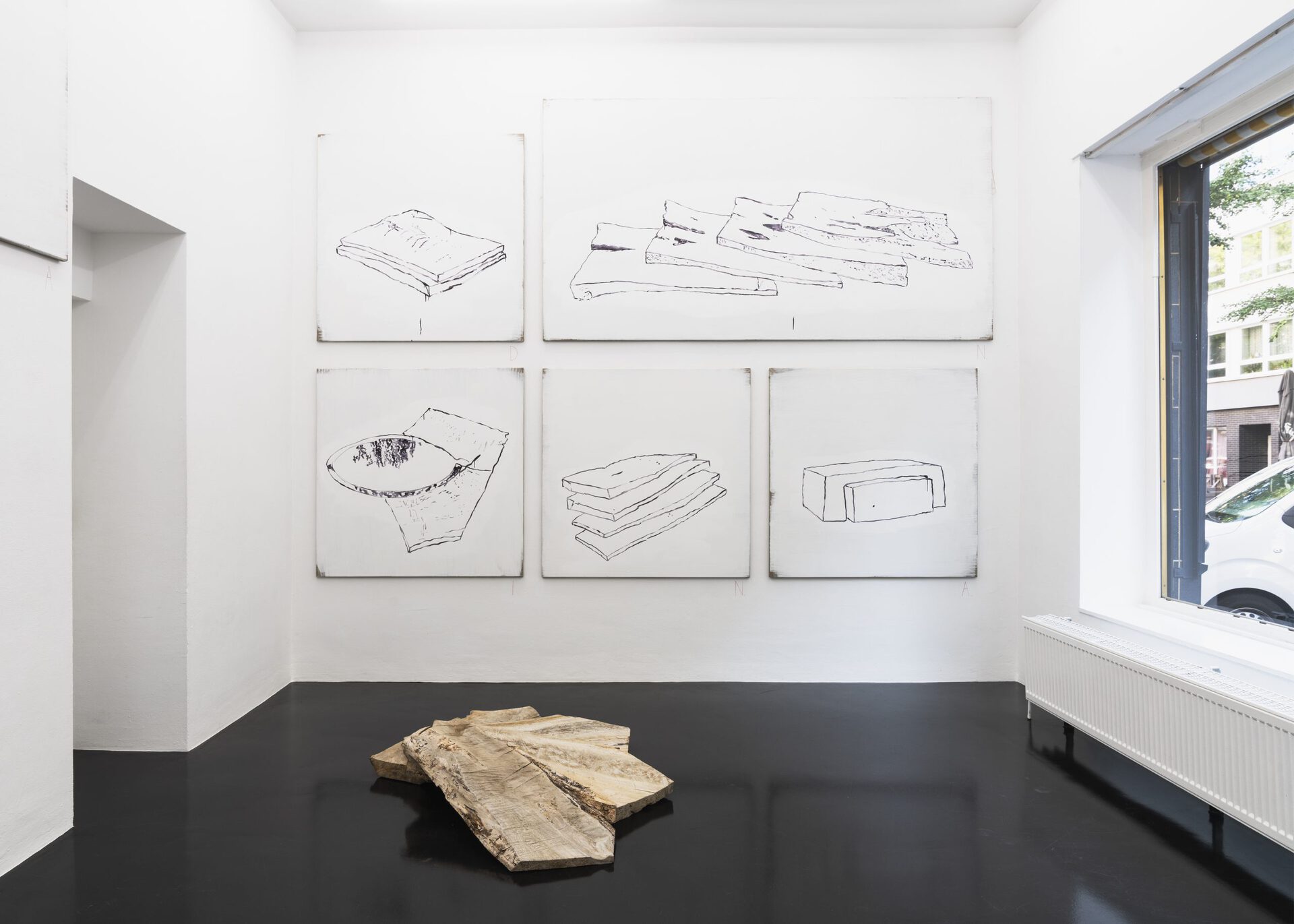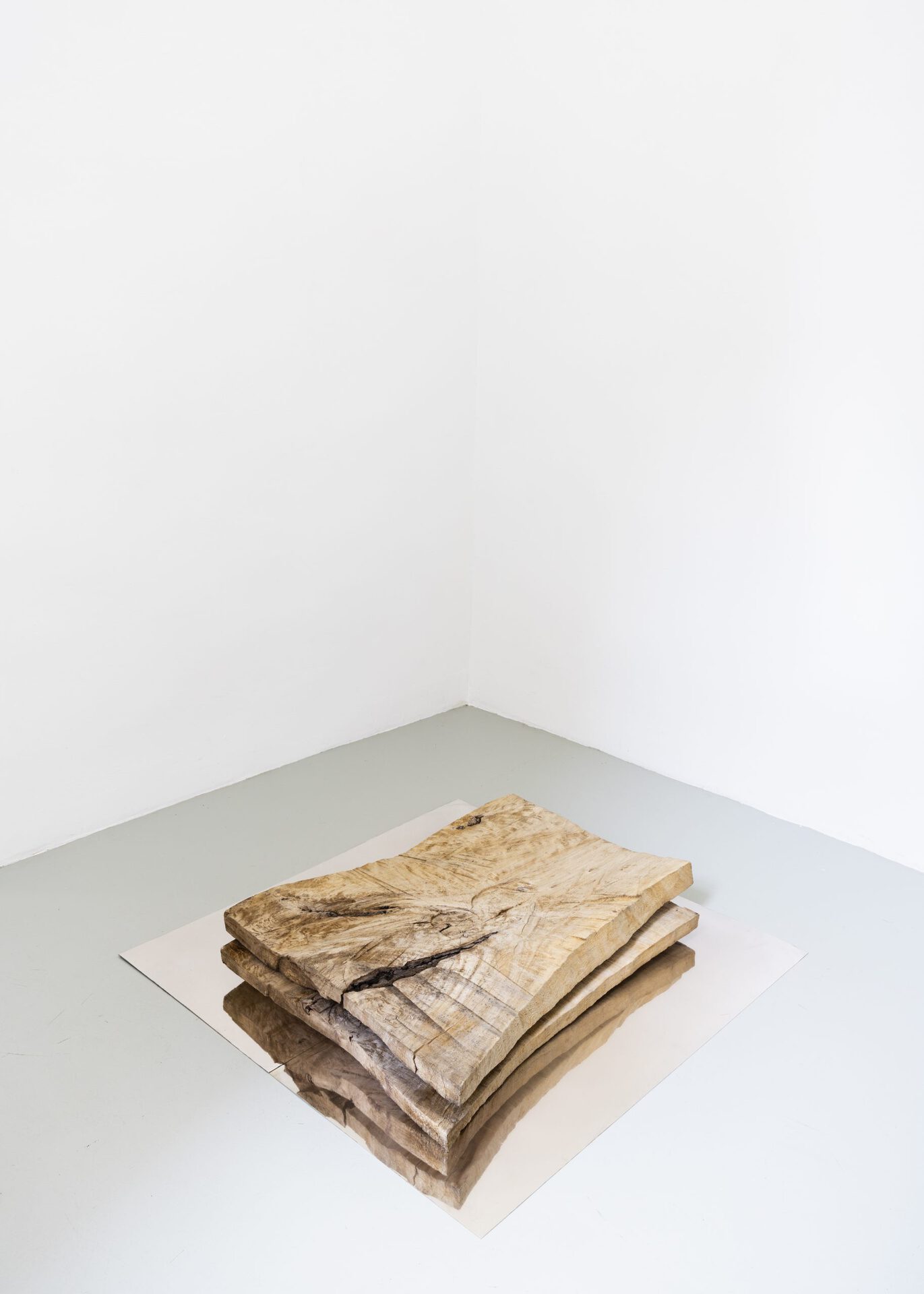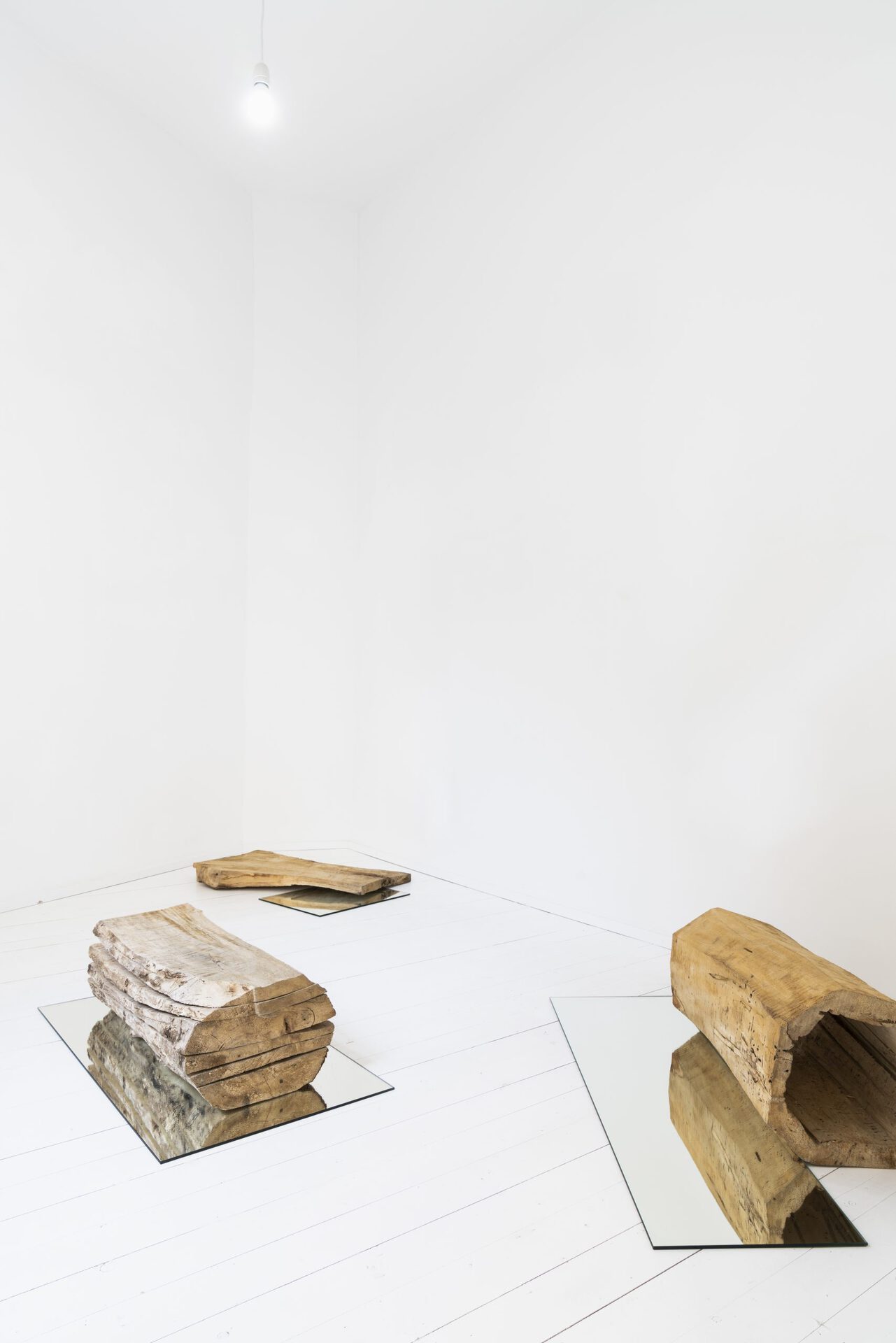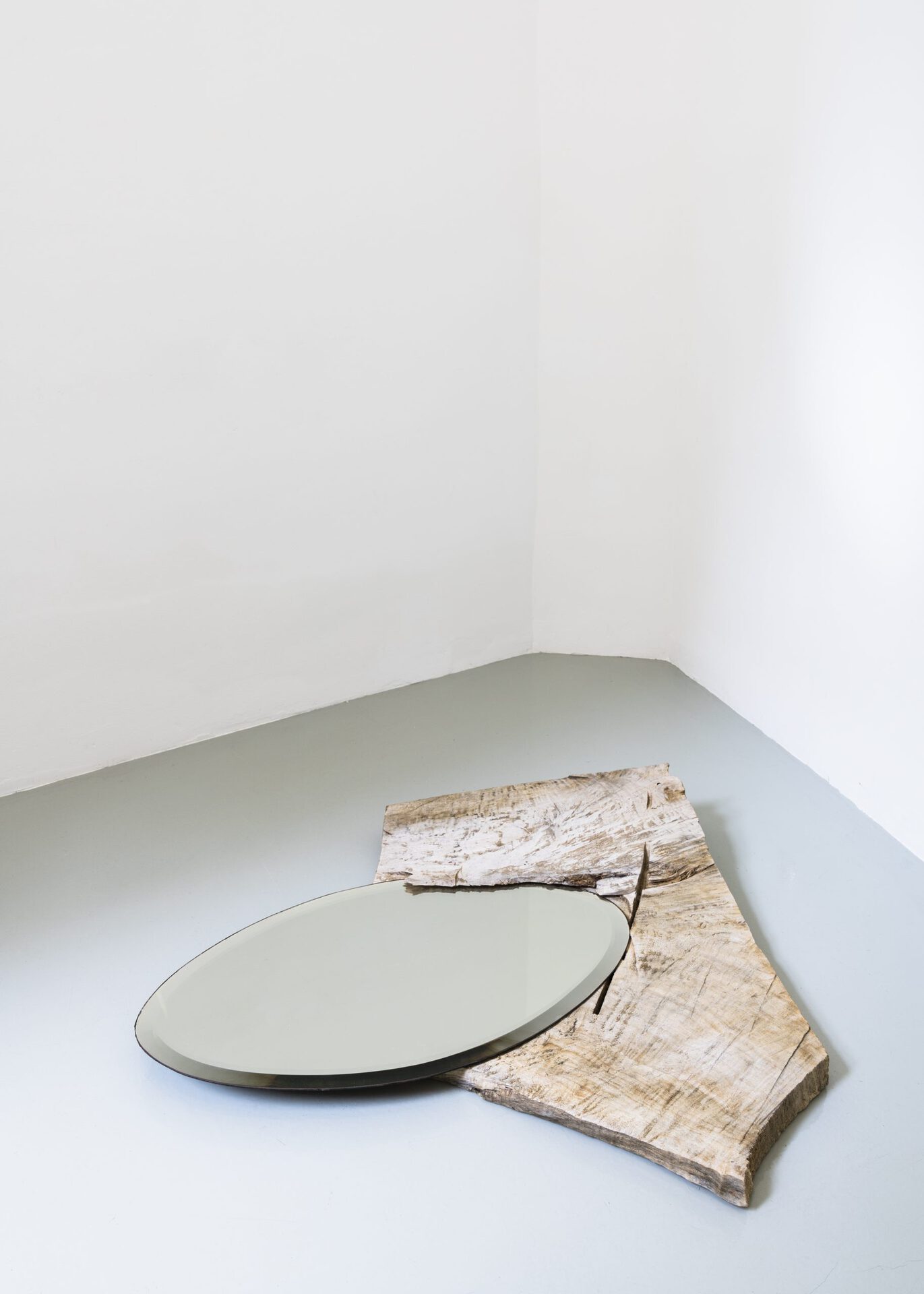Archive
2021
KubaParis
xylocopa-violacea




Location
Clages GalerieDate
02.09 –29.10.2021Photography
Anne PöhlmannText
Fragments of wood sit on top of mirror plaques. Sometimes they barely brush against
each other allowing just for their fingertips to touch. The wood is broken apart,
carved out and left outside in the sun over a period of many months – nature takes
over. The mirrored surfaces are being polished well – Shine.
The wood is drenched in the rain. It eventually dries out, dust, and dirt. It is
cleaned out and brought inside. There is a lot of care in the handling of the wood.
A group of bees let themselves in and dig holes in its surfaces. They are very
meticulous in their work, there is a lot of love put into their practice.
“The meaning of those words is clear.”1 These works are made by combining
materials: wood, pieces of mirror and silver plates. The wood has been thoroughly
worked. These elements are not found materials or ready-mades; they were not
purchased from a store or ordered through a production company in accordance with
prescribed parameters. Their provenance follows a different lineage. They were
chipped, shaped, and worked over a long period of time, infested, and then returned
to nature. Afterwards they came back to life, but only after losing so much. The
mirror-element is a clean polished surface. It was already in someone’s possession,
so it simply had to change hands to make it into the works. The silver plates were
ordered through an online retailer and shipped to the gallery for the exhibition.
They are laid next to the wooden structures in the middle of the exhibition space
on the first floor, positioned in the shape of a grid. Placed face down; they must
sit perfectly still and hold their breath. They are all treated with a lot of
attention, polished well. The window on the upper floors might have to remain open
during visiting hours while the room is occupied by the silver and the wood.
“I’ll give her the message”2 sounds a voice from the back of the room before
suddenly hanging up.
Twelve paintings hang in the space downstairs, no shadows – Limbo. They are simply
a transfer to the canvas. The canvas is stretched and mounted on a wooden picture
frame; only partially primed with some corners revealing the exposed fabric. The
forms depicted on the canvas correspond precisely with the wooden elements and
mirrors. These paintings are not an attempt to represent, they constitute. In a
very honest sense, they are not born out of curiosity for the various stages of
representation, for what is real and what is constructed, what is a work of art and
what is life. They are in many ways very classical works, existing in a long
painterly tradition. But as they rush to climb up the walls, they find themselves
grounded on a notion of constituting instead of illustrating. Traces of a frozen
image, whose poetry comes from care and not schematics. These 12 paintings hanging
on different heights, all are forced to look at each other and recite a personal
dedication. Their artist is standing in the corner – Silence.
Next to them a red letter appears, written out directly on the wall. The
combination of these letters spells out a single name,
ANA M MENDIETA
Haris Giannuras